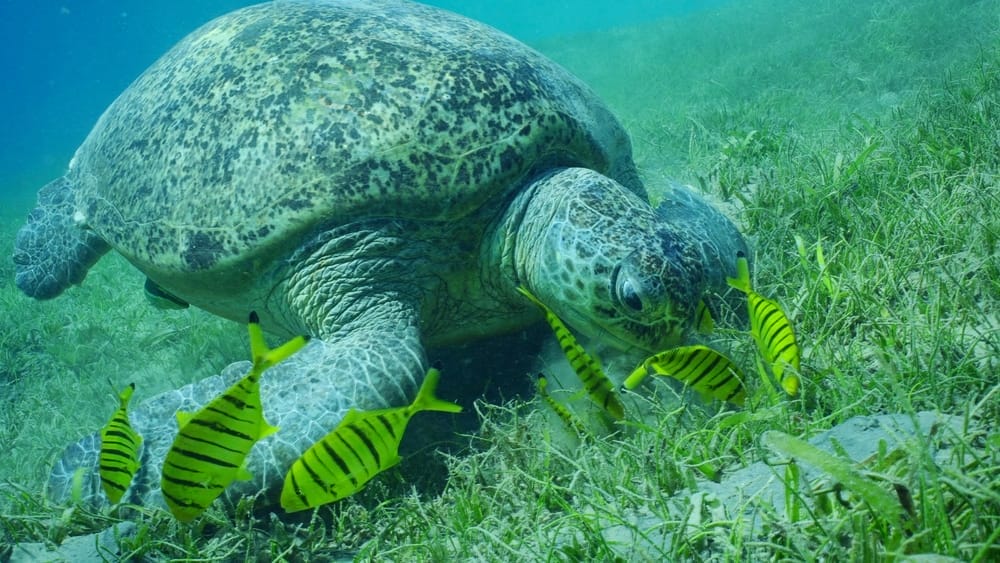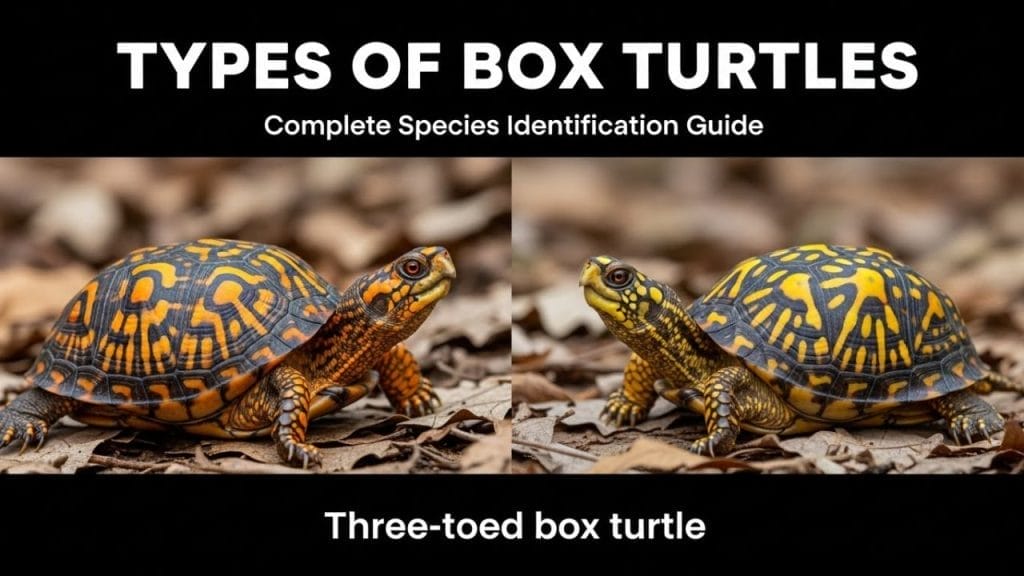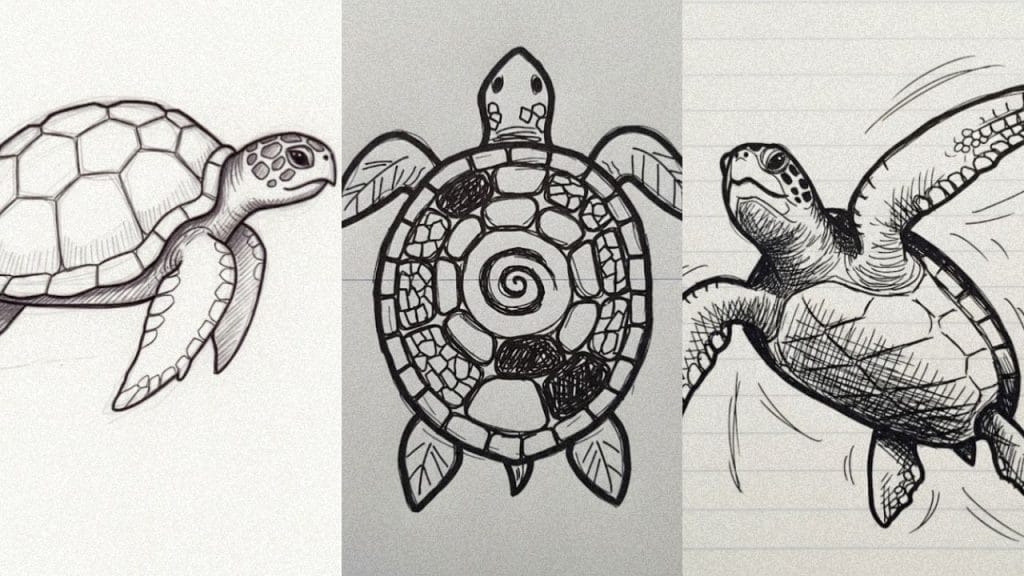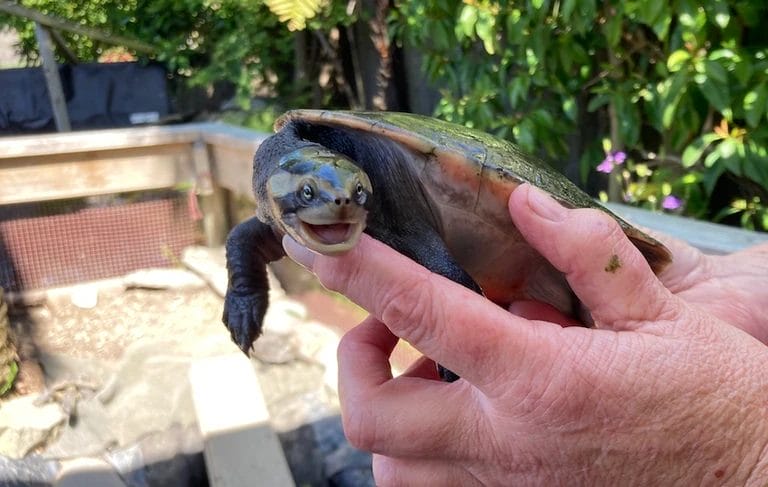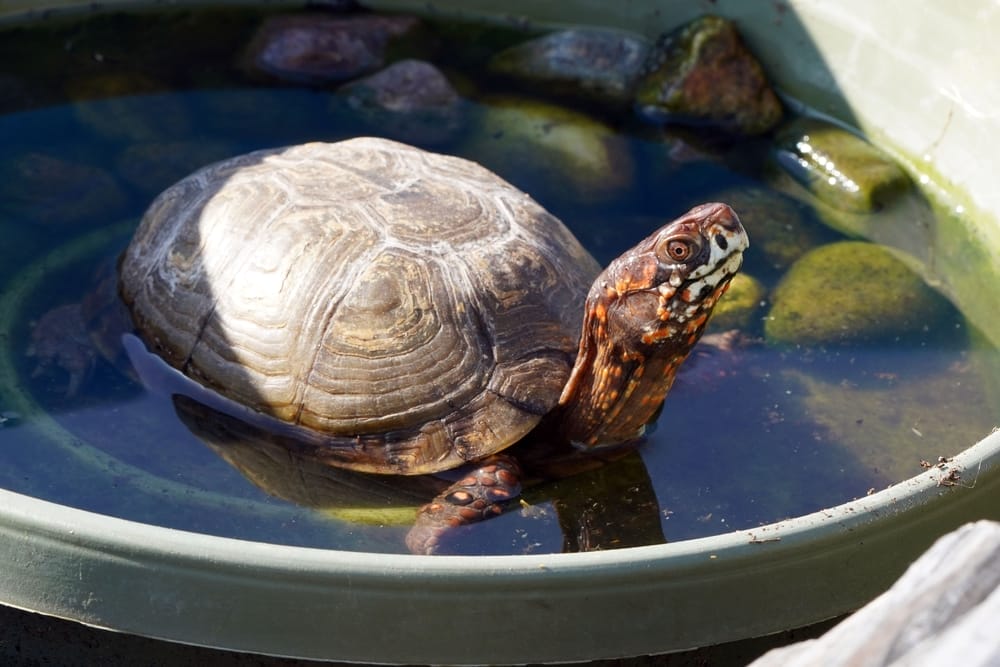Pyxis planicauda (Flat-tailed Tortoise)
Home > Turtle Database > Pyxis planicauda (Flat-tailed Tortoise)

The flat-tailed tortoise is a small, critically endangered tortoise found only in Madagascar. It’s best known for its unusually flat shell, which helps it hide under leaf litter. Its unique shape and limited range make it one of the rarest tortoises in the world.
Native To These Regions
MadagascarNative Turtle Species Map – Find Turtles by Region
Scientific Classification
Kingdom: Animalia
Phylum: Chordata
Class: Reptilia
Order: Testudines
Family: Testudinidae
Genus: Pyxis
Species: Pyxis planicauda
Common Names
- Flat-tailed Tortoise
- Madagascan Flat-tailed Tortoise
- Flat-backed spider tortoise
This Hilarious Turtle Book Might Know Your Pet Better Than You Do
Let’s be real—most turtle care guides feel like reading a textbook written by a sleep-deprived zookeeper.
This one’s not that.
Told from the snarky point of view of a grumpy, judgmental turtle, 21 Turtle Truths You’ll Never Read in a Care Guide is packed with sarcasm, sass, and surprisingly useful insights.
And hey—you don’t have to commit to the whole thing just yet.
Grab 2 free truths from the ebook and get a taste of what your turtle really thinks about your setup, your food choices, and that weird plastic palm tree.
It’s funny, it’s honest, and if you’ve ever owned a turtle who glares at you like you’re the problem—you’ll feel seen.
Identification
Description
This tortoise has a very flat and oval shell with distinct dark and light patterning. The carapace is tan to dark brown with radiating yellowish lines. Adults reach about 15–17 cm in length. Its plastron is lighter in color, and the tail is short and flat, giving it its name.
Sexual Dimorphism
Males are slightly smaller with longer tails. Females tend to have shorter, more rounded tails and slightly wider shells.
Check more turtles from the Pyxis genus
Native Origin and Distribution
Geographical Range
The flat-tailed tortoise is only found in the western forests of Madagascar, mainly in the Menabe region. Its range is very limited and fragmented.
Preferred Habitat
It lives in dry deciduous forests with lots of leaf litter. These forests provide the ground cover and shelter it needs to avoid predators and harsh sunlight.
Behavior
Feeding Habits
It eats fallen fruits, flowers, leaves, and sometimes fungi. It forages during the early morning and late afternoon when it’s cooler.
Predators
Natural predators include birds of prey and carnivorous mammals. Humans and invasive species like dogs and cats also pose serious threats.
Reproduction
Breeding Season
Mating takes place during the rainy season, usually between November and April.
Reproductive Method
Females lay one to three eggs per clutch, burying them in shallow nests. Incubation lasts several months, and hatchlings are independent from birth.
Conservation
Extinction Status
Critically Endangered (IUCN Red List)
Threats
Habitat loss due to slash-and-burn farming and logging is the biggest threat. It’s also targeted by the illegal pet trade.
Conservation Measures
Some areas of its habitat are now protected. Breeding programs exist, and local awareness campaigns aim to reduce illegal trade and habitat destruction.
Economic Importance
This species has no major role in the economy. Sadly, it is sometimes sold illegally as an exotic pet, which fuels its decline.
Interesting Facts
The flat-tailed tortoise has a very limited home range and rarely travels far. It often stays under the same bush or tree for weeks. Its unique flat shell helps it blend in perfectly with the dry forest floor, making it hard to spot.

About Author
Muntaseer Rahman started keeping pet turtles back in 2013. He also owns the largest Turtle & Tortoise Facebook community in Bangladesh. These days he is mostly active on Facebook.



